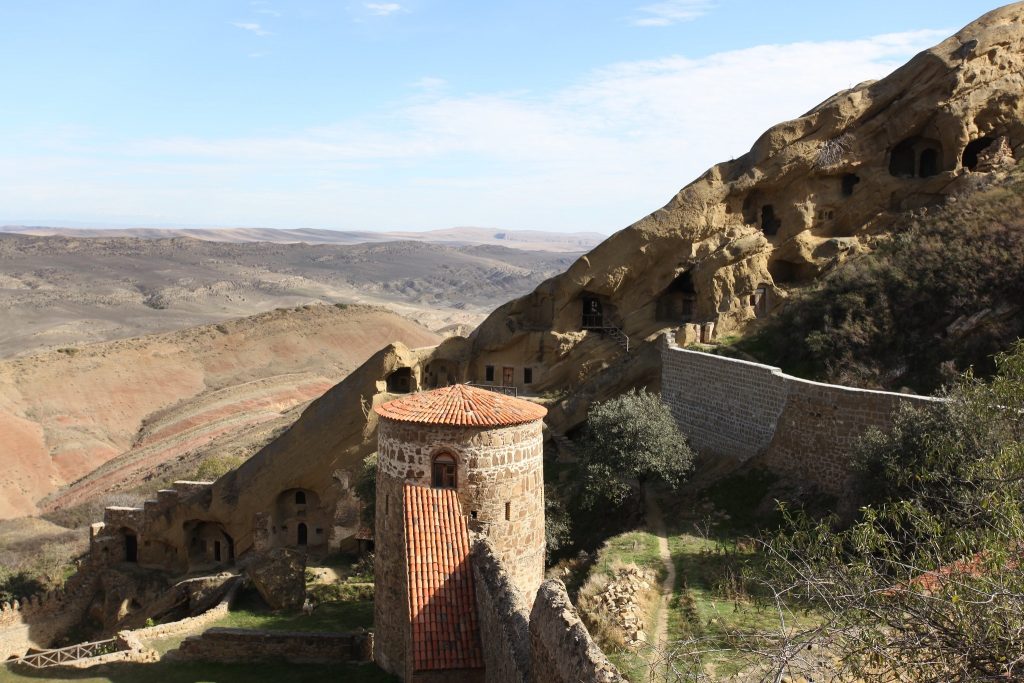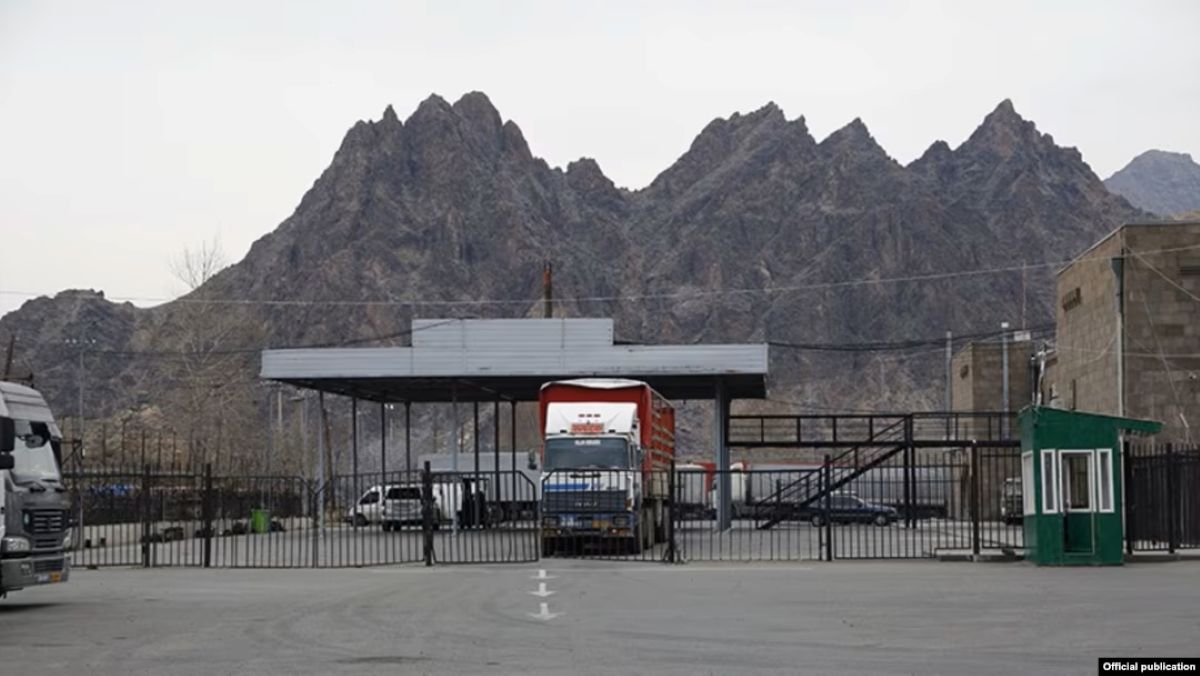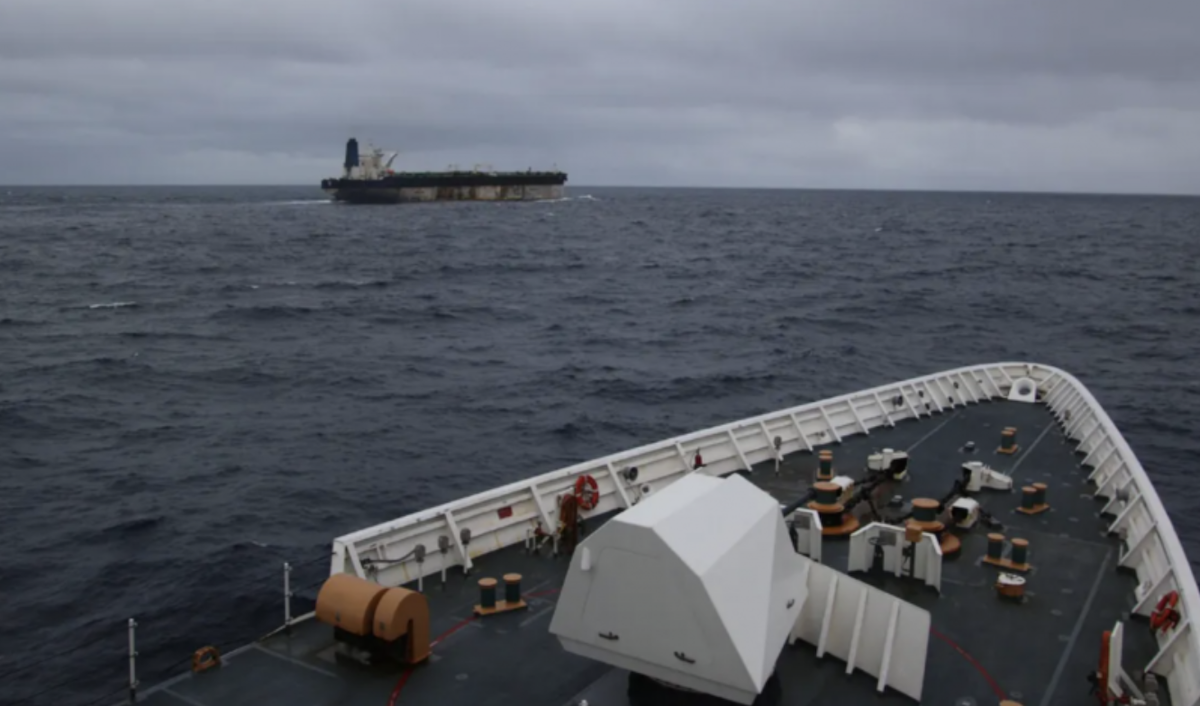Georgia investigating ‘illegal transfer’ of territories to Azerbaijan. Details of the high-profile case
A month before the parliamentary elections, the Georgian authorities have opened an investigation into what was the allegedly illegal forfeit of Georgian territories in favor of Azerbaijan under the Saakashvili government.
Two people have been detained – former members of the state commission for border demarcation and delimitation.
According to the case file, the trail leads to the previous government of Georgia, in particular to the former President Mikheil Saakashvili.
The essence of the matter is as follows: the Georgian-Azerbaijani state commission on delimitation-demarcation, which worked under Saakashvili, hid an important map, as a result of which a certain part of the territories belonging to Georgia by right was to be transferred to the Azerbaijani side.
•Landmines on the Georgian-Azerbaijani border
Some politicians and experts in Georgia see the case as politically motivated, aimed at discrediting opposition leader Mikhail Saakashvili 24 days before the decisive parliamentary elections.
The authorities have also been criticised for conducting this vague investigation against the backdrop of the Karabakh war.
Opponents of the authorities focus their attention on another detail – the map, on the basis of which the investigation was launched, was handed over to the prosecutor’s office by a Georgian businessman close to the ruling Georgian Dream party and living in Russia.
Who has been detained
On September 7, the General Prosecutor’s Office of Georgia arrested Iveri Melashvili and Natalia Ilicheva in connection with the case on the Georgian-Azerbaijani border.
They are accused of actions aimed at ‘transferring part of the territory of Georgia to a foreign state.’
The prosecutor’s office demands that Melashvili and Ilicheva be detained. If found guilty, they face ten to fifteen years in prison.

They have plead not guilty.
Melashvili has been heading one of the departments of the Ministry of Foreign Affairs for 25 years. Ilyicheva works in the border police of the Ministry of Internal Affairs.
Their detention is connected with the period when they were members of the State Commission on Delimitation and Demarcation of the Georgian-Azerbaijani Border (2006-2017).
Georgian-Azerbaijani border
The State Commission on Delimitation-Demarcation of the Georgian-Azerbaijani Border has been operating since 2006 (during the presidency of Saakashvili) and its goal is to coordinate the borders between Georgia and Azerbaijan. Azerbaijan borders Georgia in the southeast. The border between the countries is 480 kilometers. Demarcation of the border has not been completed as 35 percent have not been delineated.This process is complicated by the fact that these two strategic partners and friendly countries have disputed territories – the most acute territorial dispute is one part of the 180-kilometer section on which the David-Gareji monastery complex is located
The main evidence is the map
For the first time this case became known on September 29. The Prosecutor’s Office of Georgia issued a statement that it is investigating an ‘attempt to transfer part of the territory of Georgia to a foreign state.’
The main evidence in the case is a map from 1936-1937.
The prosecutor’s office claims that this is a relevant map that should have been used to demarcate the border back then, but for unknown reasons, the map was hidden by Georgian experts from the state commission, which was beneficial to Azerbaijan.
The prosecutor’s office claims that as a result of these actions of the former members of the commission, Georgia ceded 3,500 hectares of land.
According to the prosecutor’s office, the map became known from the Ministry of Defense on August 17, after which an investigation was launched, and the original of the map was found in the house of Natalya Ilicheva, in her office.
Before his arrest, Iveri Melashvili managed to give several interviews to journalists. He said that the map, which is the only piece of evidence in the case, is flawed, and therefore the commission was not guided by this map.
“This map was analyzed in due time, we rejected it. It has many flaws and many points do not coincide”, Iveri Melashvili said in an interview with TV Pirveli.
He also said that the part of the border contested by the prosecutor’s office had not been coordinated with the Azerbaijani side at all, that is, the crime investigated by the prosecutor’s office did not take place.
Melashvili said that as a result of many years of work with the Azerbaijani side, the Boundary Demarcation Commission was able to reach an agreement on only 66 percent of the border, and this does not include the contested David-Gareji ridge.
David Gareji, disputed territory
The materials of the prosecutor’s office refer to the disputed section of Davit-Gareji.
The ancient monastic complex on the undivided territory of the Georgian-Azerbaijani border has long been the cause of serious diplomatic disputes between the two countries.
This is the historical monument which in Georgia is called David-Gareji, and in Azerbaijan – Keshishdag or Keshikchidag.
Since the complex was built around the sixth century, both sides draw on different sources and historical facts. The border runs right through the complex, and repeated resumed negotiations between the two friendly partner countries on this issue have so far led nowhere.
Georgia claims that this is a monument of Georgian culture. In Azerbaijan, it is believed that the complex is part of the culture of the ancient state of Caucasian Albania and has nothing to do with Georgians.
Russian trace?
One circumstance is noteworthy in the case: the general director of the Mtavari TV company Nika Gvaramia was one day ahead of the prosecutor’s office and stated in its programme that the prosecutor’s office was preparing a case against Saakashvili concerning the David-Gareji monastery.
Gvaramia said that the Ministry of Defense received information about the map from David Khidasheli, a friend of Bidzina Ivanishvili, a businessman from Russia.
The Prosecutor’s Office confirms in its statement that the Ministry of Defense received these maps from a Georgian citizen residing in a foreign state. However, the identity of this person is not specified:
“A citizen of Georgia discovered important archival materials in other countries and handed over to the Ministry of Defense, including topographic maps, which were presented to the investigation,” the prosecutor’s office said in a statement.
Businessman Khidasheli did not say anything how the documents ended up in his hands.
Khidasheli told a Channel One correspondent that he would return to Georgia in a week and answer questions from media representatives.
On Google about David Khidasheli, you can find information from April this year, which mentions that Khidasheli contributed 1.2 million lari to the state fund to fight coronavirus.
According to Georgian media reports, Khidasheli has businesses in Russia and Greece.
Political assessments
This topic has two dangerous contexts, politicians and experts say. One – for internal use – the fight against Mikhail Saakashvili, the main opponent of the ruling Georgian Dream, a few days before the parliamentary elections;
And the second – a more dangerous context – the possible deterioration of bilateral relations with Azerbaijan.
Officials are trying to refute both contexts:
“This is an internal affair of Georgia, and in principle it is unacceptable to politicize this issue, especially to discuss it in the dangerous context of Georgian-Azerbaijani relations,” said Kakha Kaladze, Tbilisi Mayor and General Secretary of Georgian Dream.
According to the Minister of Foreign Affairs of Georgia David Zalkaliani, a decision will be made that will not harm the political interests of any country.
“What we hear from opponents is only political manipulation and a truly anti-state approach. We will be consistent, defending our interests to the end, and I am sure that we will reach an agreement with our Azerbaijani colleagues, which will be acceptable to both sides and will not harm their state interests,” Zalkaliani said.
The opposition believes that the Georgian Dream is creating new hotbeds of conflict in the region:
“When Azerbaijan is in a state of war, the statement of the Georgian government that territories were transferred to Azerbaijan under the previous government is incomprehensible and poses a huge threat to the current processes in our region,” said Salome Samadashvili, a representative of the opposition United National Movement party.
“Are you making territorial claims to Azerbaijan? Are you challenging 3,500 ha? An election campaign based on the image of the enemy and polarization is the only technique of the Ivanishvili government. The arrest of the head and member of the border demarcation commission is due to an attempt to once again create the image of an enemy from Saakashvili,” wrote on Facebook a member of the United Opposition electoral bloc, one of the leaders of the Republican Party David Berdzenishvili.
Politicians and activists are planning to hold protests in support of the detainees.


















